extraterrestrials
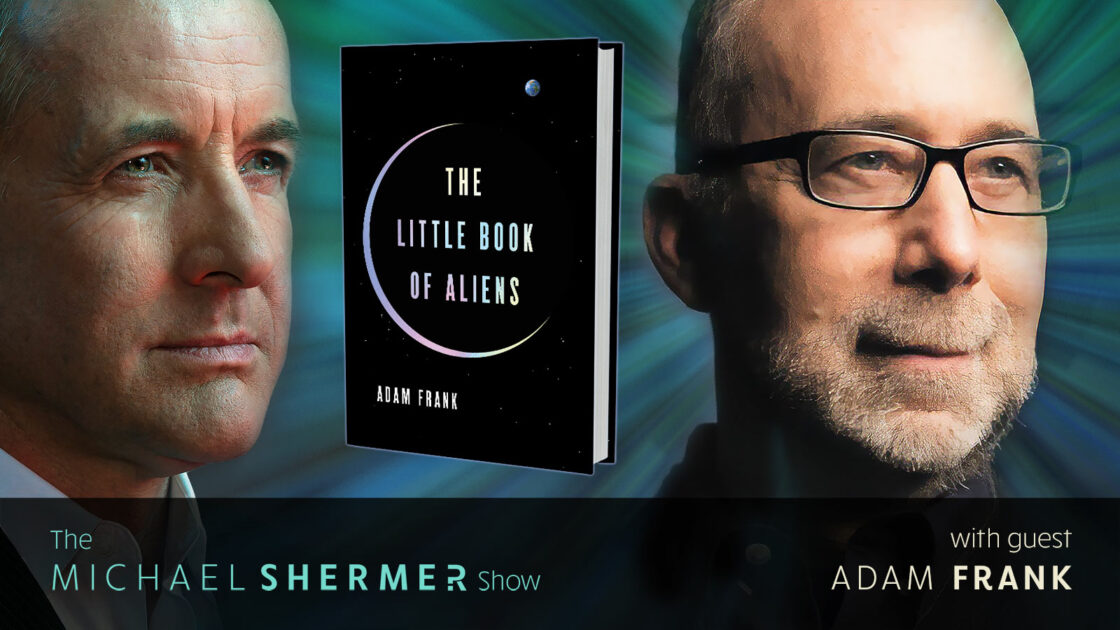
Shermer and Frank discuss: origin of Life • Drake Equation • Fermi’s Paradox • UFOs and UAPs • Projects Sign, Blue Book, Cyclops, Grudge • AATIP (Advanced Aerospace Threat Identification Program) • Alien Autopsy film • SETI & METI • technosignatures & biosignatures • aliens: biological or AI? • convergent vs. contingent evolution • interstellar travel • Dyson spheres, rings, and swarms • Kardashev scale of civilizations • aliens as gods and the search as religion • why aliens matter.
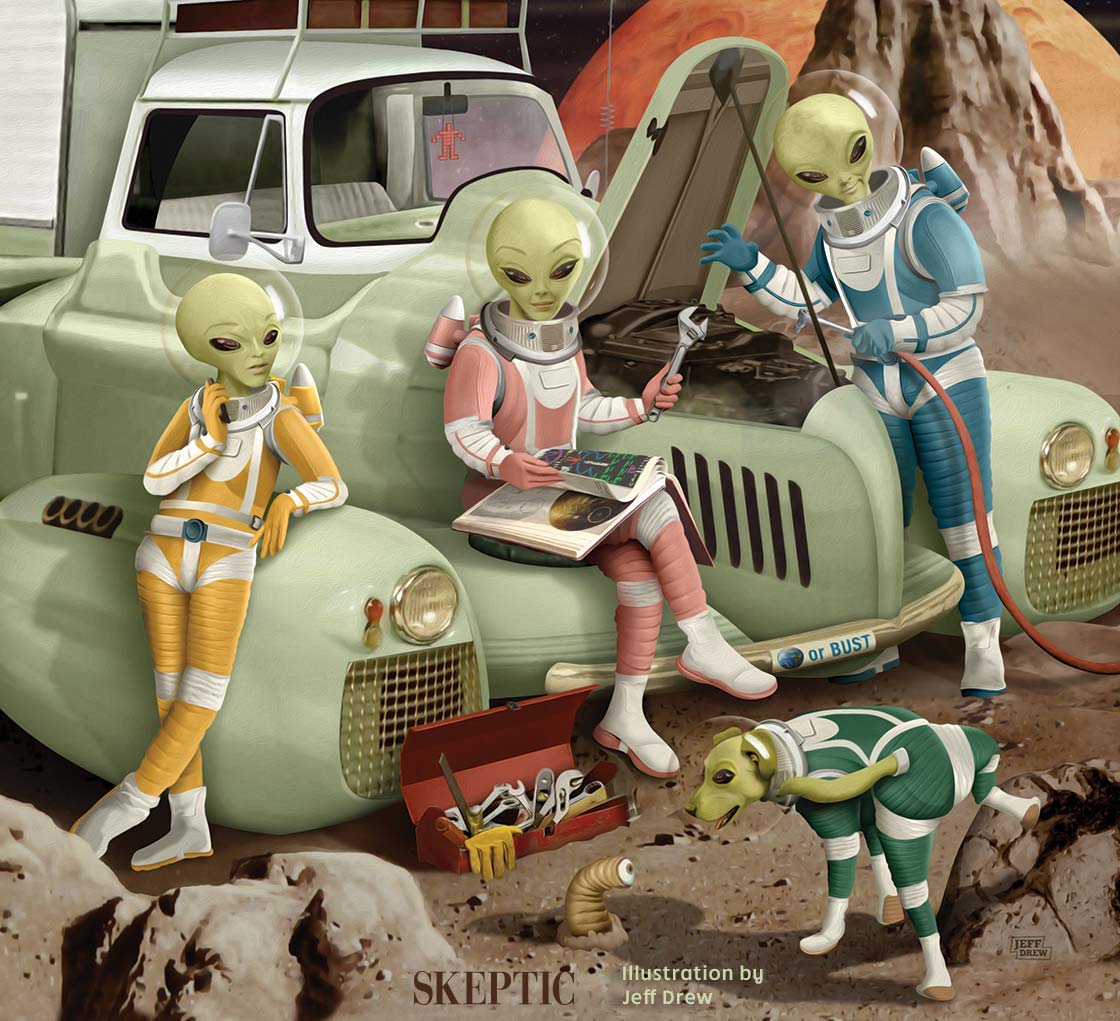
Despite much ballyhoo in the media, all efforts thus far have failed to provide substantive evidence that might link the appearance of UFOs, now called UAPs (unidentified aerial phenomena), with aliens from other planets. This failure results from limitations imposed by both biology and distance. As Morton Tavel explains, when these factors are combined, they render any such contacts virtually impossible.

Shermer and Shellenberger discuss: the original article in Debrief • the authors Leslie Kean and Ralph Blumenthal • why this story was not covered by the New York Times or the Washington Post • whistleblower David Grusch and his claim that the U.S. government and its allies have in their possession “intact and partially intact craft of non-human origin,” along with the dead alien pilots • claims of the many types of alien ships and alien beings, and that the…

Is the Government Hiding Aliens? A commentary on the latest UAP/UFO story about the whistleblower and the government UFO retrieval program. In this special episode of The Michael Shermer Show, Dr. Shermer addresses the latest claims by a whistleblower that the U.S. government and its allies has spacecraft that are “off-world,” meaning extraterrestrial in nature.

A string of mysterious balloon sightings generates fear and excitement as thousands of anxious residents scan the skies to glimpse floating objects that are believed to emanate from a hostile foreign power. The Chinese spy balloon scare of 2023? No, the balloon panic of 1892 in Russian-occupied Poland. In this analysis of the history of balloon sightings Robert Bartholomew puts the Chinese spy balloon incident into perspective and shows why more such sightings are expected.
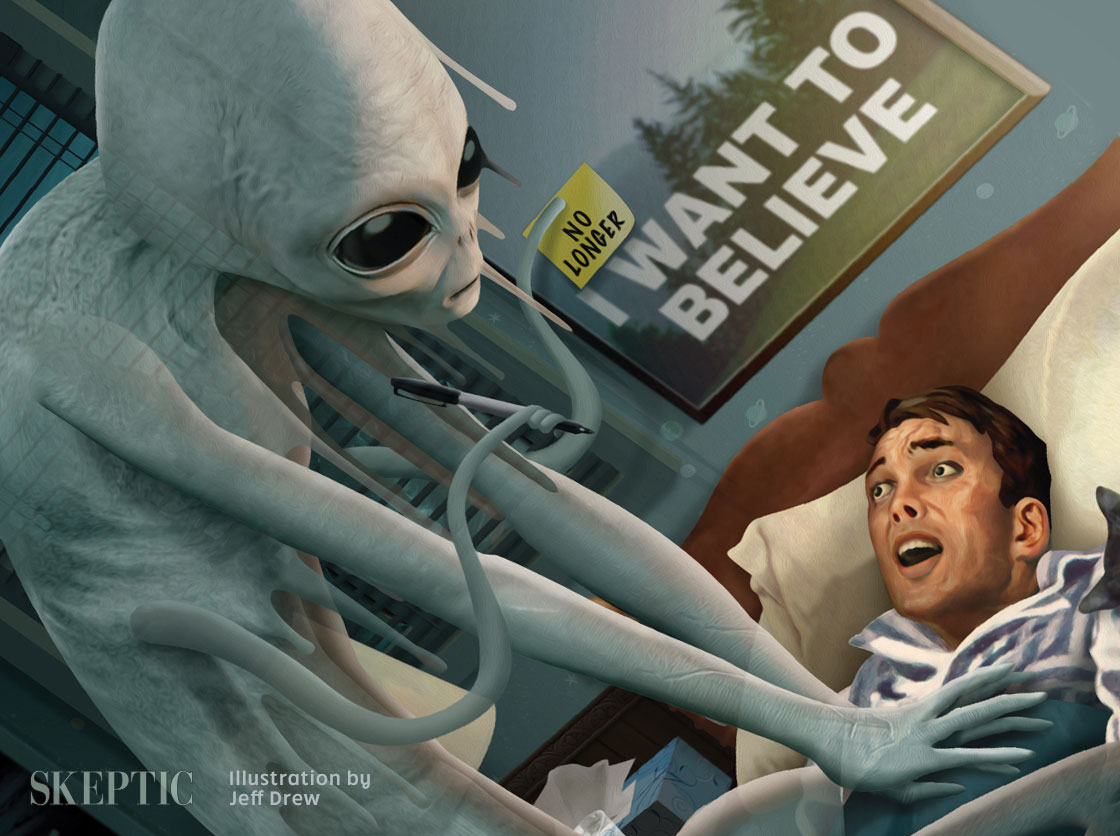
Alien abductions are among the most curious and interesting of all human psychological phenomena, and this article explores the different theories that explain from a scientific perspective what, exactly, is going on in someone’s brain when they feel like they’ve been abducted by aliens (assuming, of course, that they’re not actually being abducted by aliens).

Michael Shermer and Richard Dawkins discuss: conversations with Neil DeGrasse Tyson, Steven Pinker, Matt Ridley, and Christopher Hitchens • Popperian falsification vs. Bayesian reasoning • evolutionary adaptationism • the myth of natural selection as a “force” • E.O. Wilson and group selection, multilevel selection, and other misunderstandings about evolutionary theory • metaphors and analogies in science: artificial selection • convergent evolution • ETIs • Trumpism, and more…
In episode 205, Michael Shermer speaks with Richard Dawkins about evangelizing for evolution, science, skepticism, philosophy, reason, and rationality, based on his new book Books Do Furnish a Life: Reading and Writing Science.
Given the latest wave of apparent UFO/UAP sightings Michael Shermer reminds us that the residue problem in UFOlogy is instructive because it enables skeptics to find common ground with believers and allows us to live comfortably with the fact that we can’t explain everything.
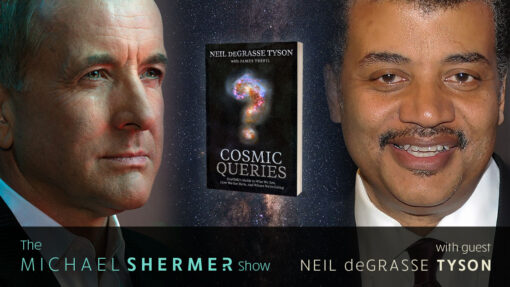
In episode 164 of The Michael Shermer Show, Dr. Shermer speaks with Neil deGrasse Tyson about his new book Cosmic Queries: StarTalk’s Guide to Who We Are, How We Got Here, and Where We’re Going. Enjoy this thought-provoking conversation on life, the universe, and everything, as Neil deGrasse Tyson tackles the world’s most important philosophical questions about the universe with wit, wisdom, and cutting-edge science.
In episode 164 of The Michael Shermer Show, Dr. Shermer speaks with Neil deGrasse Tyson about his new book Cosmic Queries: StarTalk’s Guide to Who We Are, How We Got Here, and Where We’re Going. Enjoy this thought-provoking conversation on life, the universe, and everything, as Neil deGrasse Tyson tackles the world’s most important philosophical questions about the universe with wit, wisdom, and cutting-edge science.
Listen to “The Possibility of Life in the Universe,” a lecture by Carl Sagan, delivered one early evening in September 1974 (most likely Thursday, 5 September) to the U.S. Air Force Academy at Arnold Hall theater in front of a 3,000 cadet packed house lecture.
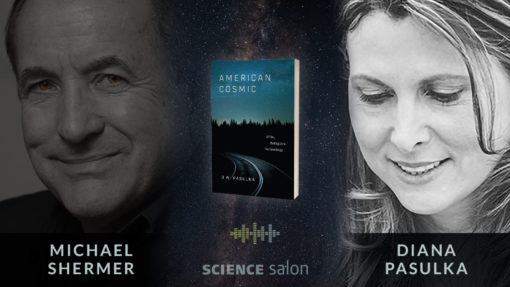
More than half of American adults and more than 75 percent of young Americans believe in intelligent extraterrestrial life. This level of belief rivals that of belief in God. In Science Salon # 105 Michael Shermer speaks with Diana Pasulka about her book: American Cosmic: UFOs, Religion, Technology.
In Science Salon # 105 Michael Shermer speaks with Diana Pasulka about her book: American Cosmic: UFOs, Religion, Technology. PLUS an excerpt from How to Have Impossible Conversations: A Very Practical Guide provides some tools to help people navigate contentious conversations.
In Science Salon # 103 Michael Shermer speaks with Robert Frank about how social environments profoundly influence our behavior. This conversation is based on Frank’s new book: Under the Influence: Putting Peer Pressure to Work. PLUS: Michael Aisner presents a vintage slice of history, science, and skepticism about UFOs in this interview he recorded in 1966 with UFOlogist Dr. J. Allen Hynek, his photo analyst cohort Fred Beckman, and then repackaged in the early 1970s with contributions from Sherman J.…

Michael Aisner presents a vintage slice of history, science, and skepticism about UFOs in this interview he recorded in 1966 with UFOlogist Dr. J. Allen Hynek, his photo analyst cohort Fred Beckman, and then repackaged in the early 1970s with contributions from Sherman J. Larson, of the National Investigations Committee on Aerial Phenomenon.
In Science Salon # 80, Michael Shermer speaks with Bryan Walsh about his brand new book End Times in which he provides a stunning panoramic view of the most catastrophic threats to the human race.
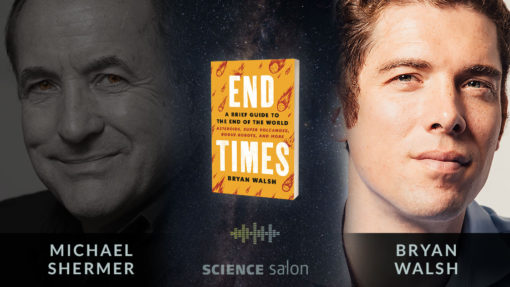
In Science Salon # 80, Michael Shermer speaks with Bryan Walsh about his brand new book End Times in which he provides a stunning panoramic view of the most catastrophic threats to the human race.
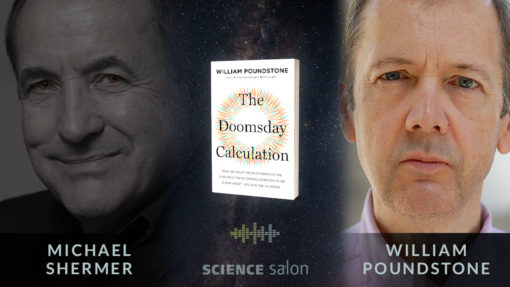
When will the world end? How likely is it that intelligent extraterrestrial life exists? Are we living in a simulation like the Matrix? Is our universe but one in a multiverse? How does Warren Buffett continue to beat the stock market? How much longer will your romance last? In this wide ranging conversation with Michael Shermer, science writer William Poundstone answers these questions, and more.
When will the world end? How likely is it that intelligent extraterrestrial life exists? Are we living in a simulation like the Matrix? Is our universe but one in a multiverse? How does Warren Buffett continue to beat the stock market? How much longer will your romance last? In Science Salon # 76 — a wide ranging conversation with Michael Shermer — science writer William Poundstone answers these questions and more. PLUS Gabriel Andrade examines the incest taboo and asks:…
NEXT →




















